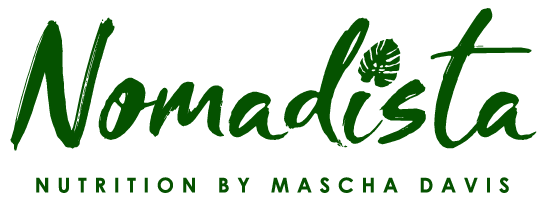Menopause can be a big transition, physically, mentally, and emotionally. Hot flushes, poor sleep, brain fog, weight gain, libido and mood changes are all common. These symptoms can affect daily life, yet menopause, like female and sexual health in general, is still not widely discussed.
If you or someone you love is going through menopause, know this: you don’t have to just power through. Alongside guidance from your healthcare provider, there are plenty of things you can do at home to feel your best. Here are three key ways to support your health through this chapter.
1. Eat to Support Your Changing Body
Menopause is a full-body shift, driven largely by hormones. What you eat, and how your gut responds, can have a real impact on how you feel day-to-day. Weight changes are also common as estrogen levels drop, often leading to more fat around the waist and a higher risk of insulin resistance or type 2 diabetes.
Focus on nourishing foods that stabilize hormones, support bone and gut health, and boost energy:
Whole grains like oats, quinoa, and brown rice
Plenty of fruits and vegetables for antioxidants and fiber
High-fiber foods such as beans, lentils, and pulses
Calcium-rich foods — milk, yogurt, and leafy greens
Protein from fish, lean meat, eggs, and plant sources
Phytoestrogens such as soy, flaxseed, and edamame
Probiotic foods like kefir, yogurt, sauerkraut, or kimchi to support gut balance
Limit highly processed foods, excess salt (aim for ≤2,300 mg per day), and added sugars (no more than 10% of daily calories, about 20 g for a 2,000 kcal diet). Alcohol and caffeine can also trigger hot flushes or night sweats, so pay attention to how your body responds. If you miss your evening glass of wine, try a zero-sugar seltzer mocktail with fresh herbs and ginger, a refreshing ritual without the side effects!
2. Keep Moving (In a Way That Feels Good)
Exercise can feel like the last thing you want to do when you’re tired, achy, or moody, but it’s one of the most effective tools for managing menopause symptoms. Regular movement helps maintain muscle mass, boost mood, protect bone health, and support weight balance.
You don’t need to train for a marathon. Start with something that feels doable like a daily walk, yoga, Pilates, or a dance class with friends. Movement should feel supportive, not punishing. The key is consistency and enjoyment.
3. Manage Stress and Protect Your Energy
Hormonal changes can make stress feel more intense, both physically and emotionally. Combine that with a busy schedule, and it’s easy to feel drained.
If you can, build in moments to slow down. Ask for help with household tasks, say no to plans that leave you overstretched, and carve out time for rest. Activities like yoga, meditation, or journaling can be incredibly grounding. (The CALM app is a great place to start.)
Simple habits like meal planning or batch cooking can also reduce weekday chaos, helping you nourish yourself well without extra stress.
Take Care of You
Menopause isn’t easy, but it’s also not the end of feeling good in your body. With the right nutrition, movement, and stress management, you can absolutely support your health and feel empowered during this transition. And if symptoms ever feel unmanageable, don’t hesitate to reach out for nutrition support, you don’t have to do this alone.



